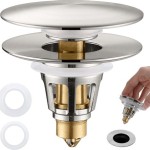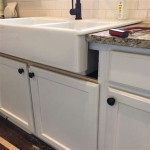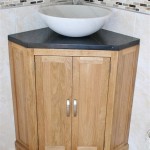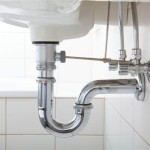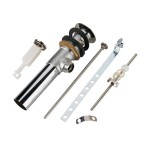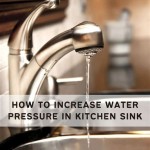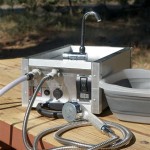Best Drain Cleaners for Kitchen Sinks
Kitchen sinks are prone to clogs due to the accumulation of grease, food particles, and soap residue. A clogged drain can disrupt kitchen activities and create unpleasant odors. This article explores various drain cleaners suitable for kitchen sinks, highlighting their strengths, weaknesses, and appropriate usage scenarios.
Drain cleaners are generally categorized into chemical and natural solutions. Chemical drain cleaners utilize strong chemicals to dissolve clogs, while natural methods employ environmentally friendly ingredients and techniques. Selecting the right drain cleaner depends on the severity of the clog and user preferences.
Chemical Drain Cleaners: These are often the fastest and most effective solution for stubborn clogs. They typically contain strong alkaline substances like sodium hydroxide (lye) or sulfuric acid. These chemicals react with the clog material, breaking it down into smaller, flushable components.
Caustic Soda (Lye) Drain Cleaners: These are highly effective in dissolving grease and hair, which are common culprits in kitchen sink clogs. They generate heat during the chemical reaction, further assisting in the breakdown of the blockage. However, caustic soda is a corrosive substance and should be handled with extreme caution. Protective gloves and eye protection are mandatory. Furthermore, these cleaners are not suitable for all pipe materials, potentially damaging older or delicate plumbing.
Sulfuric Acid Drain Cleaners: These are even more potent than lye-based cleaners and are reserved for the most severe blockages. They react violently with water and organic matter, generating significant heat. Due to their highly corrosive nature, sulfuric acid drain cleaners require utmost care during handling. They are generally not recommended for frequent use and should be considered a last resort.
Oxidizing Drain Cleaners: This type of cleaner uses chemicals like bleach or nitrates to break down organic matter. They are less corrosive than caustic or acidic cleaners, making them a potentially safer option for some plumbing systems. However, they might not be as effective against tough grease clogs.
Enzymatic Drain Cleaners: These cleaners utilize natural enzymes to break down organic matter. They are a slower-acting solution compared to chemical cleaners but are considerably gentler on pipes and the environment. Enzymatic cleaners are best suited for preventing clogs and addressing minor build-ups rather than tackling fully blocked drains. Regular use can help maintain free-flowing drains by preventing the accumulation of grease and food particles.
Natural Drain Cleaning Methods: For those who prefer avoiding harsh chemicals, several natural methods can effectively address kitchen sink clogs.
Boiling Water: Pouring a kettle of boiling water down the drain can sometimes melt solidified grease and dislodge minor blockages. This is a simple, readily available solution for tackling initial signs of a slow drain.
Baking Soda and Vinegar: This combination creates a fizzing reaction that can help break down grease and loosen debris. Pour one cup of baking soda followed by one cup of vinegar down the drain. Let it fizz for about 30 minutes, then flush with hot water. This method is relatively safe and environmentally friendly.
Plunger: A sink plunger can create suction, forcing the clog down the drain. Ensure a tight seal around the drain opening and use firm, consistent plunging motions.
Drain Snake: A drain snake, also known as a plumber's snake, is a flexible tool that can be inserted into the drain to manually break up or retrieve the clog. This method requires some dexterity but can be highly effective for retrieving hair and other debris.
Preventing Kitchen Sink Clogs: Preventing clogs is often easier than clearing them. Simple practices can significantly reduce the likelihood of drain blockages.
Grease Disposal: Avoid pouring grease down the drain. Instead, collect it in a disposable container and discard it in the trash.
Strainers: Install a strainer in the sink drain to catch food particles and debris before they enter the plumbing.
Regular Cleaning: Flush the drain with hot water after each use to help prevent grease build-up. Periodically use boiling water or a natural cleaning solution like baking soda and vinegar to maintain clear drains.
Choosing the right drain cleaner and adopting preventative measures can help ensure a smoothly functioning kitchen sink and avoid the inconvenience and unpleasantness of a clogged drain.

Best Chemical Drain Cleaners For 2025 Cnet

Best Drain Cleaner For Kitchen Sink Top 5 Recommendations

Zep 32 Oz Advanced Kitchen Sink Drain Opener U49710 The Home

Best Drain Cleaners For Kitchen Sink

Which Drain Opener Is The Best Let S Find Out

Best Chemical Drain Cleaners For 2025 Cnet

The 8 Best Drain Cleaners In 2024 Cleaner For Hair

The Best Drain Cleaning Tools To Keep At Home

Best Drain Cleaner For Kitchen Sink Top 10 Cleaners On The Market

Power Gel Mr Muscle
